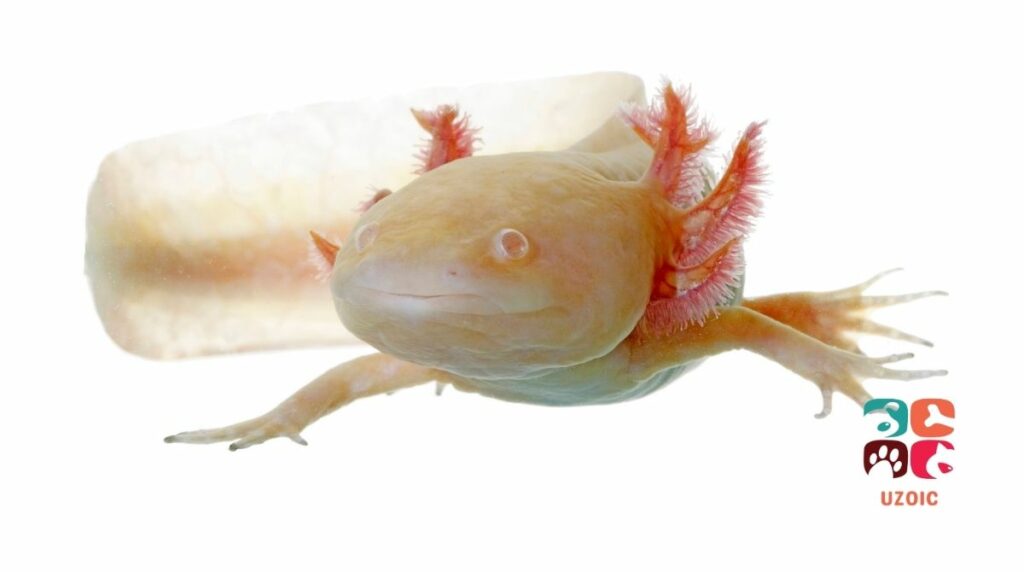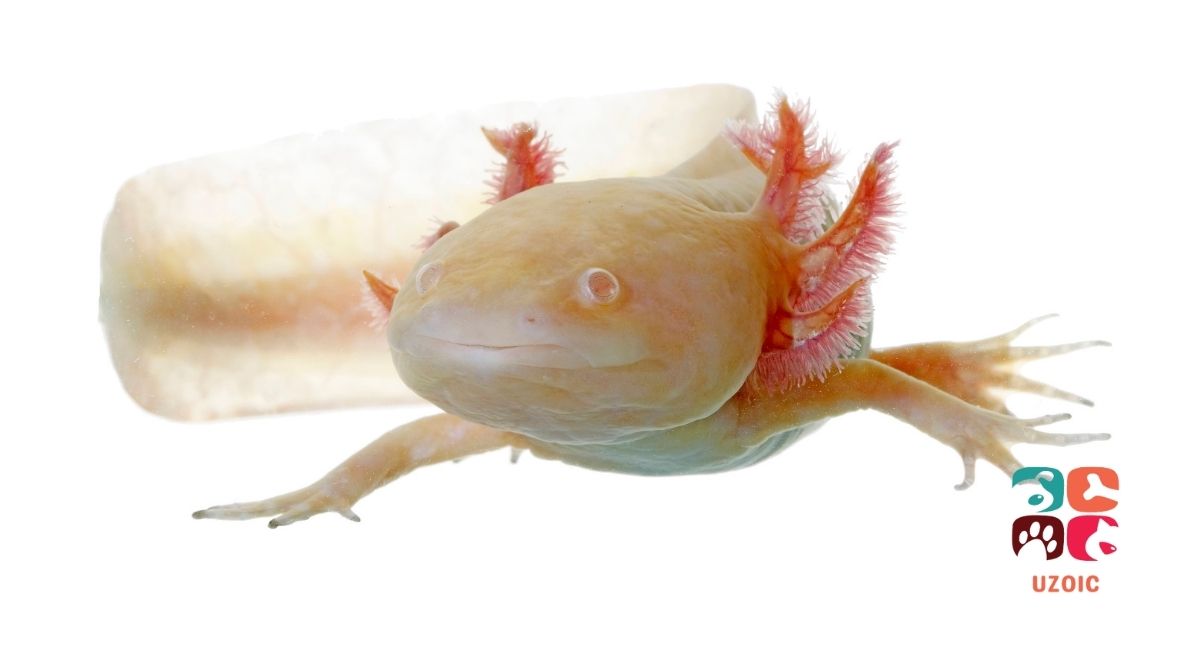If you’re like me, you probably love learning about new creatures. And if you’re a fan of amphibians, the Axolotl is definitely a species worth getting to know. This article will teach you 8 signs of a healthy axolotl so that you can keep your pet healthy and happy!
Table of Contents
Signs Of A Healthy Axolotl!
Although axolotls are often thought of as passive, sedentary creatures, many clear indicators can help you distinguish between a healthy and sick axolotl. In the post titled How Do You Treat A Sick Axolotl?, we discussed the top symptoms of a sick Axolotl and how to treat a sick axolotl. So you can quickly tell when your Axolotl is unwell, but how can you know if it is healthy?
Here are eight signs that your Axolotl is in good health:

Active And Alert
There are many signs that can indicate whether or not an axolotl is healthy. One of the most important is an active and alert demeanor.
An unhealthy or sick axolotl will typically be sluggish and unresponsive, while a healthy one should act vibrant and full of life. For example, an active and alert axolotl will show a strong interest in its surroundings, moving around frequently and remaining curious about new stimuli.
A Good Appetite
Another tell-tale sign of a healthy Axolotl is having a good appetite. A sick or unhealthy axolotl will often lose its appetite, becoming uninterested in food and eating much less than usual. Conversely, a healthy axolotl will have a hearty appetite, eagerly accepting food when offered.
A healthy appetite is a good indicator that your pet is doing well. A sick Axolotl will usually give up eating if it is feeling sick. This is the first symptom of sickness before others appear.
If your Axolotl is regularly eating its food and taking time to explore its surroundings, this suggests that it is getting all the nutrients it needs to thrive.
Clear Eyes
Clear eyes are another excellent way to gauge the health of an axolotl. Unhealthy axolotls will often have cloudy, milky eyes that indicate an infection. On the other hand, Healthy axolotls will have bright, clear eyes that are free of any discharge or cloudiness.
The eyes of a healthy axolotl should be clear and free of any discharge. If you see any redness or swelling, it could signify an eye infection. A bright and clear gaze indicates that your Axolotl’s eyesight is sharp and strong, whereas cloudy or milky eyes can indicate underlying health issues or poor diet. Cloudy eyes may usually accompany another symptom, such as shrinking gills. So check both properly.
Good Swimming Ability
The Axolotl is an aquatic creature, so its swimming ability is another good indicator of health. A healthy axolotl, on the other hand, will swim powerfully and effortlessly, appearing strong and agile.
Swimming normally is another critical sign of good overall health; an axolotl should be able to swim without any major disruptions in its movement or balance. Axolotls that are swimming abnormally may be sick or injured. A healthy Axolotl should be able to control its own buoyancy and not float in an uncontrolled fashion or sideways. A sick or unhealthy axolotl will often have trouble swimming, appearing to be weak and sluggish in the water. A floating axolotl is usually sick.
Watching how your axolotl swims can help you get an idea of its overall health, so if you see it moving around normally with ease, then all is probably well in its world!
Smooth Skin
The skin of an axolotl is also a good indicator of health. Healthy axolotls will have smooth, shiny skin that is free of any blemishes or lesions. Unhealthy axolotls, on the other hand, will often have rough, scaly skin that is covered in lesions or other blemishes.
If you notice any bumps or irregularities, it could be a sign of a skin infection.
Healthy Gills
Gills play a central role in an axolotl’s ability to breathe underwater; healthy gills should appear flush with oxygenated blood. Its gills should be pink and moist, not swollen or red. They should be intact and healthy with no fungus growing on them. You can easily tell when there is fungus on the gills, as they will be white and fluffy.
The health of an Axolotl’s gills is a good indicator of its overall health, so be sure to check them regularly!
In addition, a healthy axolotl will maintain good circulation by opening and closing its gills regularly.
Grows Normally
Healthy axolotls will grow at a normal rate and have proportionate bodies. Look for the proportion of the tail to the body. In most cases, it should be equal. Another way to tell if an axolotl is growing normally is by its weight. If you are unsure, ask your veterinarian for a growth chart so that you can track your pet’s progress.
Unhealthy axolotls will often have stunted growth or fail to grow at all. This can be due to a number of factors, including poor diet, disease, or parasites. If you notice that your Axolotl is not growing at a normal rate, take it to the vet for a check-up.
Normal Waste
Finally, the waste of an axolotl can also be a good indicator of health. Healthy axolotls will typically produce small, brown pellets that are relatively dry and odorless. Axolotls do poop a lot, so if you find or rather do not find much poop every day, then surely there is something wrong with your aquatic friend. Unhealthy axolotls will often produce large, wet, and smelly stools or no poop at all.
Constipated Axolotl will have large, dry pellets or no poop at all. This can be due to a lack of water, dehydration, or a blockage. If you notice that your Axolotl is not pooping, take it to the vet for a check-up.
If you notice that your Axolotl’s waste is abnormal in any way, it could be a sign of a health problem. If you are unsure, ask your veterinarian for advice.
Conclusion
Overall, there are many different ways to tell if an axolotl is healthy or not. By paying attention to these signs, you can get a good idea of your Axolotl’s overall health and well-being. If you have any concerns, be sure to talk to your veterinarian. They will be able to help you determine if there is a problem and how to best solve it. Thanks for reading 8 Signs Of A Healthy Axolotl! Hope you were able to learn something new about these amazing cute amphibians!


